When I was younger, there used to be a container of bleached white sugar sitting in my cabinet that I would use in every recipe that called for sugar. I didn’t know that it was bad for me at all. I only knew two things: it was sweet and it was cheap. Nowadays, I look into my cabinet and see a wide variety of sweeteners—honey, maple syrup, unbleached pure cane sugar, rapadura, and molasses.
So what has changed?
Well, for starters, I did my research. And it wasn’t easy either. Many of the resources and websites I looked at were contradictory to each other and for a long time, I didn’t know what to think! So I went with my gut and delved into the world of natural sweeteners.
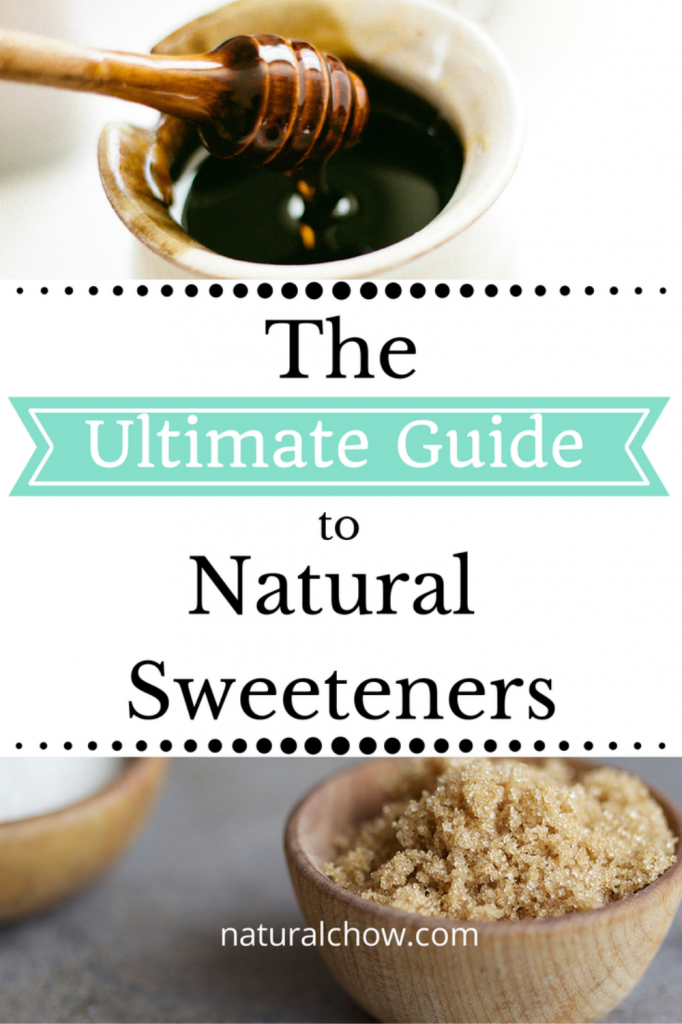
So which sweeteners are considered “natural”?
Organic Pure Cane Sugar: It’s made from organic sugar cane and is not bleached.
Honey: There are two types of honey—raw and liquid. Raw honey has fine textured crystals in it and appears cloudy and creamy. Liquid honey, the honey you’re probably familiar with, is also considered a natural sweetener, although raw is better.
Whole Cane Sugar (Rapadura/Sucanat): It still contains all of the sugar cane’s natural molasses and has a deep brown color and a distinct, natural molasses flavor. Naturally dehydrated granulated sugarcane, with all the minerals and molasses still in tact.
Muscovado: A type of unrefined brown sugar with a strong molasses flavor. Nutritionally richer than standard brown sugar.
Maple Syrup: It’s simply the sweet sap from a sugar maple tree. Organic is best, but always strive for Grade B to avoid the possibility of formaldehyde in your syrup.
Molasses: Molasses is a by-product of the processing of sugar cane. It has loads of minerals in it, making it super healthy for you.
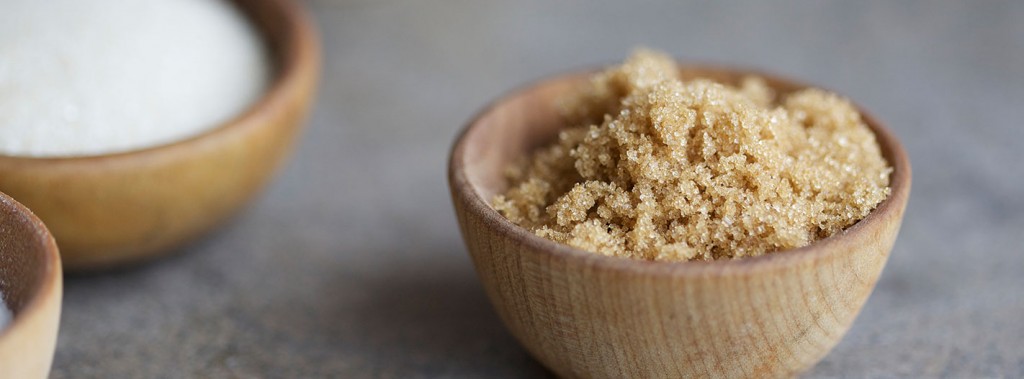
Sweeteners to avoid:
Stevia: It’s made from the extract of the stevia leaf and is sweeter than regular sugar. Stevia taxes the adrenals and often contains additives. Stevia’s controversial past includes studies linking it to liver mutations, fertility problems, and disruptions in energy metabolism (source).
White Sugar: It’s bleached, non-organic, and highly refined. A simple alternative is organic pure cane sugar.
Powdered Sugar: Also bleached, non-organic, and highly refined. Cornstarch is added, which usually isn’t organic either. You can easily make your own at home by blending organic pure cane sugar and organic arrowroot starch together.
Corn Syrup: It contains dangerous chemicals and contaminants. It’s almost always made from genetically modified corn and it’s highly processed. For more info about corn syrup and HFCS, click here.
Beet Sugar: The only reason why I would be leery of beet sugar is because it is usually made from genetically modified beets.
Agave: Agave nectar is not traditional, is highly refined, and actually has more concentrated fructose than high-fructose corn syrup. It is not a “natural” sweetener (source).
Xylitol: It can be derived from the xylan of birch trees, but most of the time it is derived from the xylan of genetically modified corn. So unless it’s labeled that it’s from birch trees and that it’s organic, you’re better off not messing with it.
How can I substitute natural sweeteners for unnatural sweeteners?
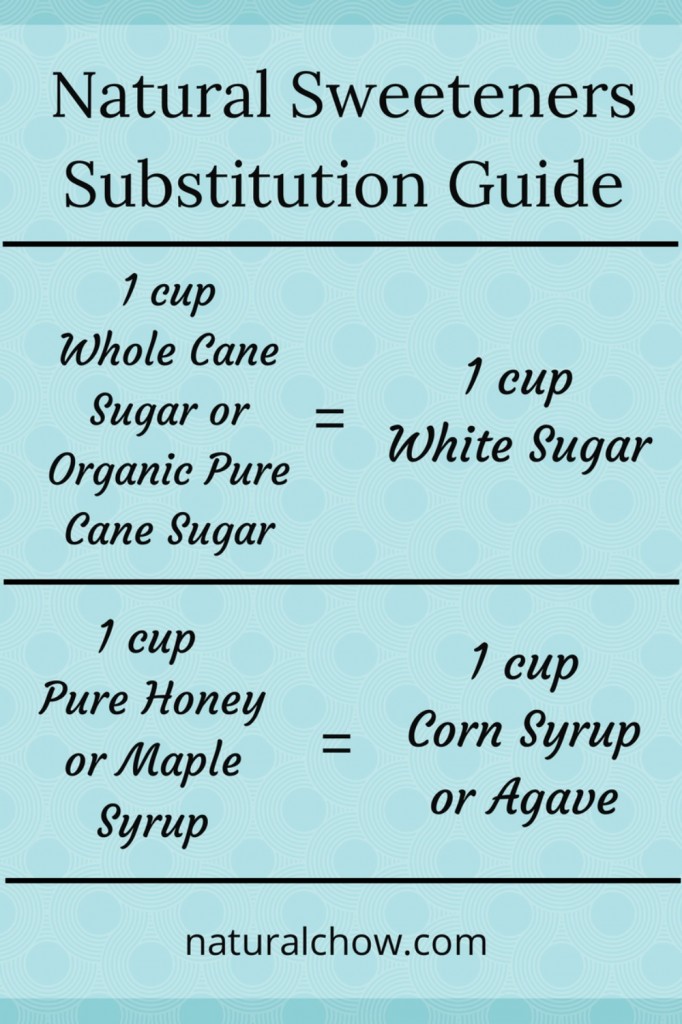
Where I Can I Buy Natural Sweeteners?
Click here to visit my Natural Sweeteners store on Amazon.com!


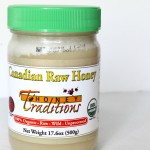
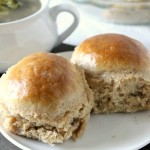
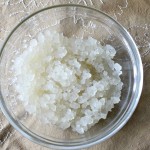

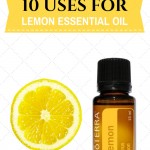
Corn syrup is NOT HFCS. Consumers cannot buy HFCS and, while some corn syrups can contain HFCS there are many that don’t.
http://en.wikipedia.org/wiki/Corn_syrup
It sounds like you have confused the two products. (OF course, corn syrup is processed and should be used sparingly, if at all. Some things, though–certain holiday treats–need corn syrup.)
Hi Kathy. You’re right—corn syrup and HFCS are two different things. When I mentioned HFCS, I was trying to let my readers know that there are many processed food items with corn syrup and HFCS and those food items should be avoided at all costs. Thanks for letting me know of that slip up!
There is a lot of talk about stevia being the best sweetener right now. I am interested in studying this more, because, actually I can’t stand the taste. I’m glad I found your website as it has sweeteners I will use and it looks like some great recipes. Thanks!
Hey Misty! Yeah, I’ve heard the talk, but I’d rather stick to my gut and avoid it. I know what you mean about the taste—it literally tastes like poison to me. Thanks for stopping by!